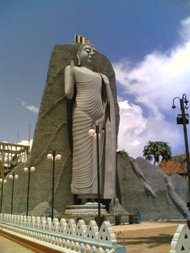Human-Genetic researchers tackle the issue by Induced Pluripotent Stem Cells
The last few years have seen an upsurge of public attention in the scientific world to the ethics of cloning, as well as stem cell and human-embryo research. There has been a steady stream of media interviews, letters to editors, and articles or op-ed pieces. Although these included some contributions by individual scientists, there are few if any reports on the actual percentage of scientists who support or oppose such research.
Human cloning limited to cells
The most striking distinction is that between the cloning of whole human beings and the therapeutic cloning of human stem cells. In scientist’s open-ended comments, respondents emphasized the importance of such stem cell research and its likely medical benefits for humanity, its great potential to develop replacement tissues and organs, as well as its potential for gene therapy.
The only rationale for cloning a human being that is tolerated to a small degree is to enable infertile couples to have a child; even this motive, however, is not considered satisfactory by the vast majority. Other reasons, promoted by cloning proponents in the literature and in the media, fare even worse: to avoid the risk of passing on a genetic disease by cloning the parent free of the abnormality, to produce a genetically identical sibling of a sick or dying child for compatible tissue, to ‘bring back’ a beloved relative.
Paramount dilemma for Stem Cell Research
In political discussions and in the current national political debate even in Sri Lanka, opposition to therapeutic is based most often on the reliance on human embryos for the development of potentially therapeutic stem cells.
In theory, millions of people suffering devastating diseases may one day be helped or even cured with treatments derived from human embryonic stem cells. But human embryos must be destroyed to obtain these stem cells. So, research involving them is mired in controversy, with each side arguing passionately for the rights of the sick or the rights of the unborn. These arguments evoke ‘the moral status of the embryo’ and ultimately scientists discovered induced Pluripotent Stem cells to overcome the issue.
Induced pluripotent stem cells are…
Induced pluripotent stem (iPS) cells, commonly abbreviated as iPS cells or iPSCs, are a type of pluripotent stem cell artificially derived from a non-pluripotent cell, typically an adult somatic cell, by inducing a ‘forced’ expression of certain genes. This could provide a way to generate all kinds of tissues from individual patients. That would make it easier to study diseases with genetic components, and perhaps, to generate replacement tissue that would not be rejected by patients’ immune systems.
At Kyoto University, a team led by Shinya Yamanaka published a paper in Cell, showing that differentiated human cells could be reprogrammed to an embryo-like state, using the same formula that he had previously used to transform differentiated mouse cells. First the researchers engineered cultured human skin cells (called fibroblasts), so that additional genes could be inserted more easily. The team added viruses engineered to introduce four genes (OCT3/4 SOX2, KLF4, and c-MYC) into cultured skin cells collected from adults. After several weeks in culture, the team started to see colonies resembling those formed by human embryonic stem (ES) cells. When these cells, called induced pluripotent stem cells, were expanded and tested, they were very similar to ES cells. Cell populations doubled at about the same rate; the chromosome-preserving enzyme telomerase, active in ES cells, was also active in iPS cells. Several pluripotency genes that are silenced in fibroblasts but active in ES cells were active in the iPS cells. Genes from the retrovirus were also silenced, indicating that the transformation happens by shifting gene expression of endogenous genes. The iPS cells could be differentiated to make beating heart muscle and proteins characteristic of neurons. They could also make representatives of the three major cells types (ectoderm, mesoderm, and endoderm) in vivo and in vitro.
Ethical perspective of other bio-social issues usually does not involve the same degree of universal concern for the effects on mankind that are bought to mind by the bioethics of therapeutic techniques by iPS. No more fear, then, of a slippery slope does not appear to be justified, but even though it’s safe ‘Social and ethical issues will increase, not diminish’.-------------The Island





No comments:
Post a Comment